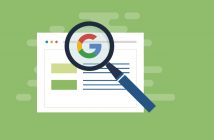If I asked you to think of someone that you’ve met at a networking event in the last year, who you would love to have as a client, who would that be?
Now imagine this: That person is sitting on their couch this Saturday afternoon, and a notification pops up on their phone telling them you’ve sent them a message via LinkedIn or Facebook. But the problem is, you haven’t.
Instead, your account has been hacked, and the hacker is now messaging all of your connections on LinkedIn or Facebook, looking for who they can suck in, as they pretend to be you.
By the time you find out, it is too late. They’ve changed your password and have locked you out of your account.
Your connections are now receiving weird messages from you, perhaps pushing some product they could buy online, or asking for a quick loan to get you out of fix. Whatever the hacker sends, it’s damaging your reputation.
This isn’t a fictitious story. It happened to a friend of mine who is a sales rep. Months later, the hacker is still sending messages to her contacts, trying to suck people in.
Two other business owners I know had the same thing happen to them, but with the added problem of losing access to their entire business profiles on Facebook and Instagram, because they were the only administrator on the page. Both had worked hard to build up their social media presence, which had become a good source of leads and brand awareness. They lost access overnight.

Firstly, and most importantly, make sure that you have Two Factor Authentication (2FA) turned on for your social media accounts. You’ll use an authentication app, such as Microsoft Authenticator, which provides a six-digit code that changes every 30 seconds. You’ll then need both a password and the six-digit authentication code to login to your account, which stops hackers from getting into your account, even if they know the password.
If you don’t have this setup, when your account gets hacked, the hacker will setup 2FA using their own device. This stops you from being able to get back into the account, and you’ve then probably lost your account forever.
Secondly, for any social media business profile pages you have, make sure you have more than one person assigned as an administrator. That way, if your account was to get hacked, you’ll have someone else who still has administrator access to the business profile. For Facebook, the best way to do this is to setup Facebook Business Manager, and assign your staff access from there.
With these simple steps, you can save yourself from a world of pain.






